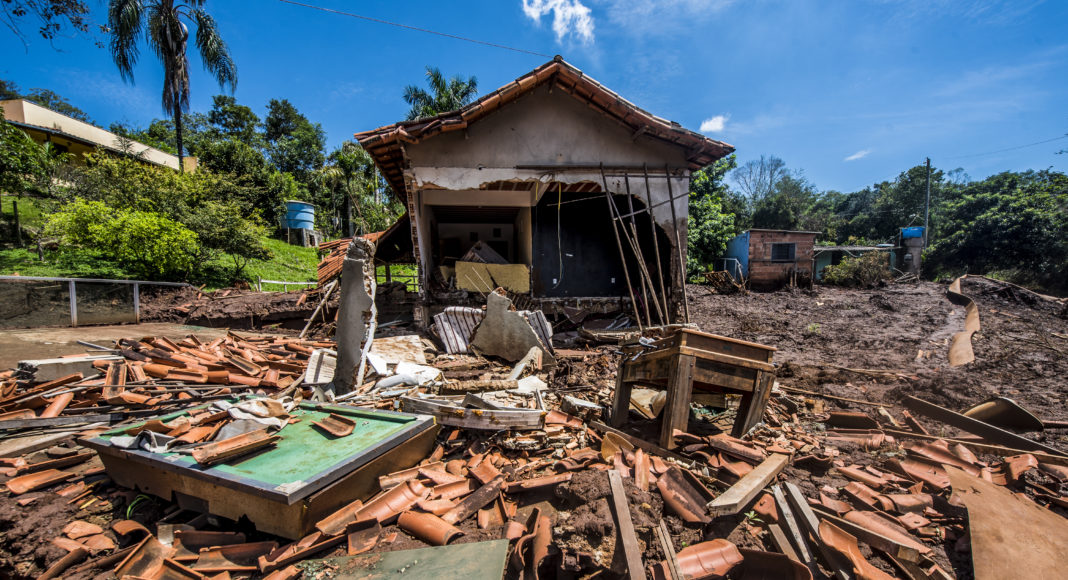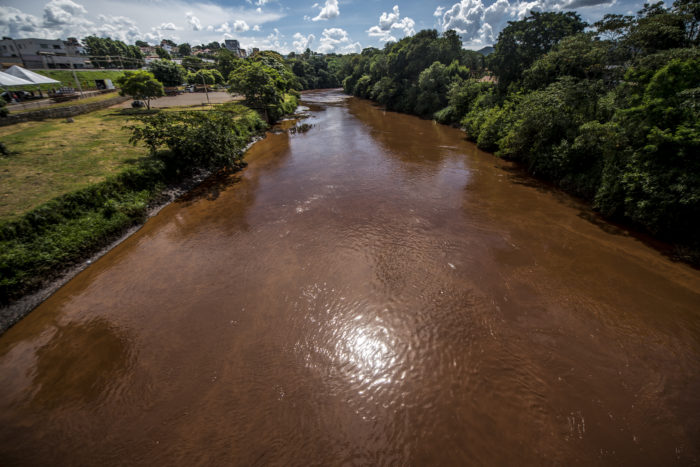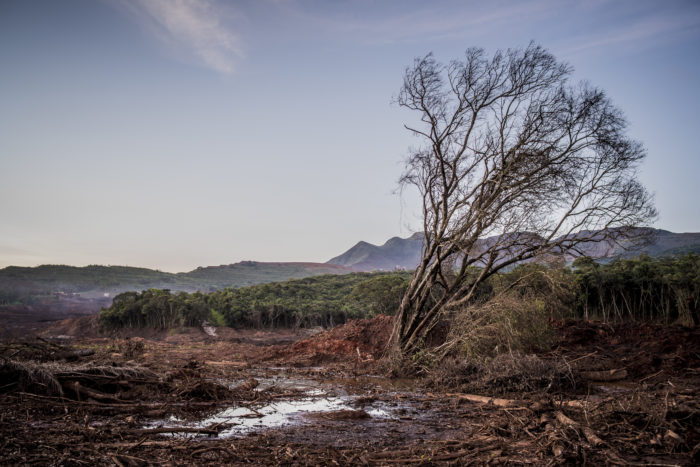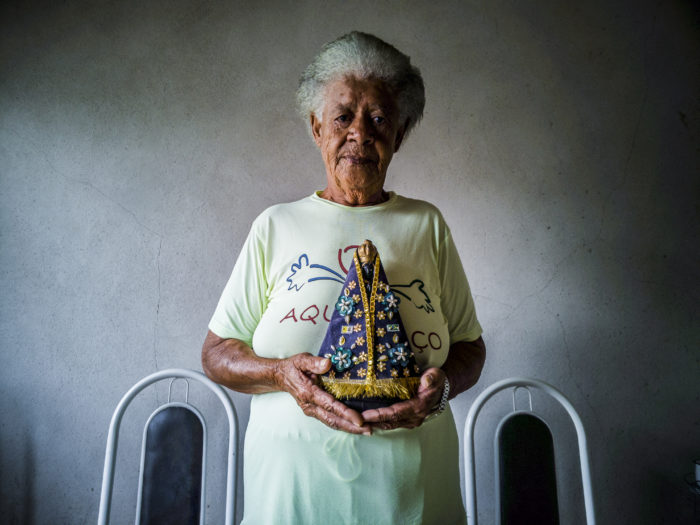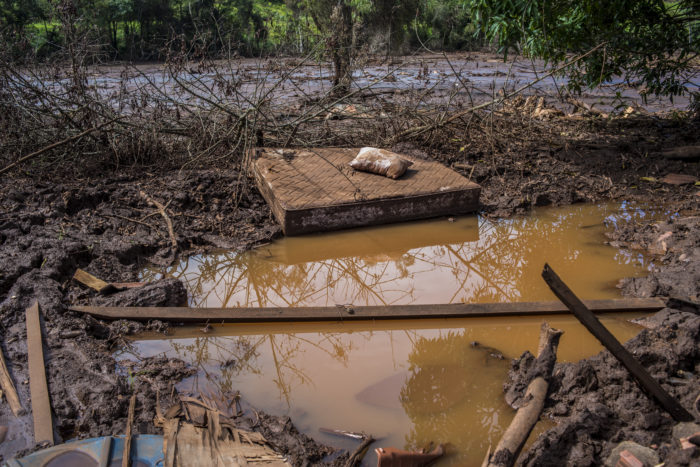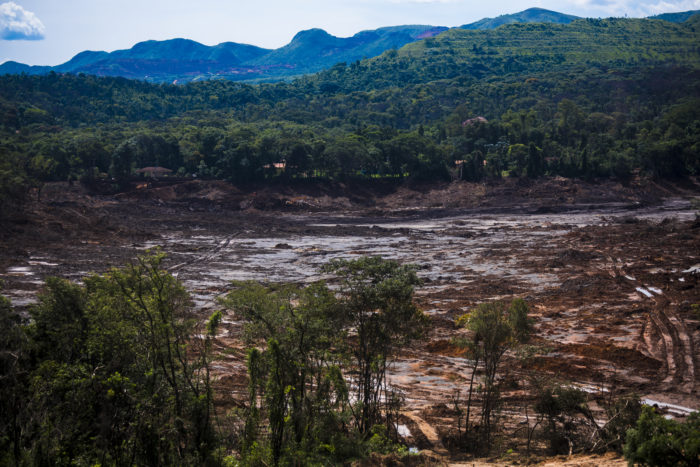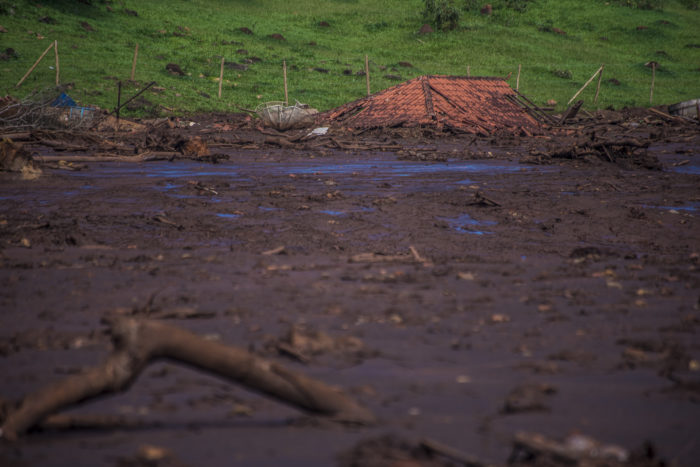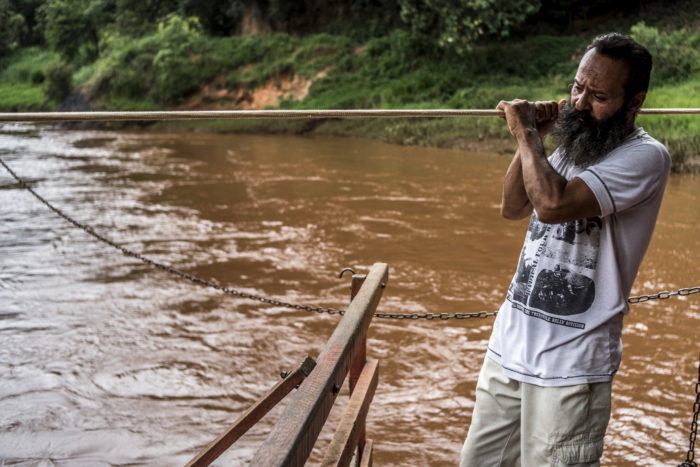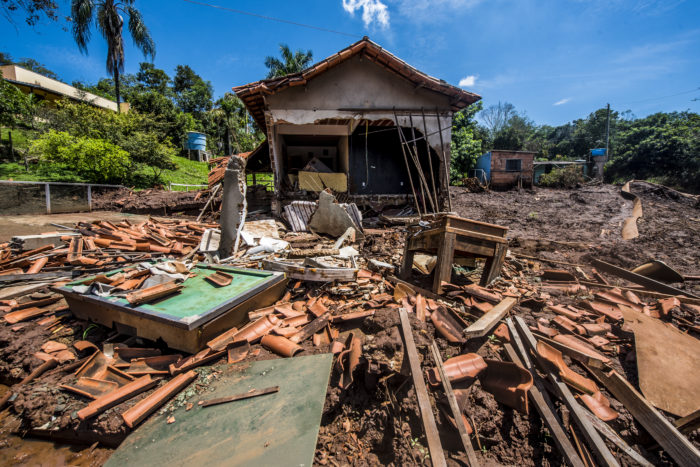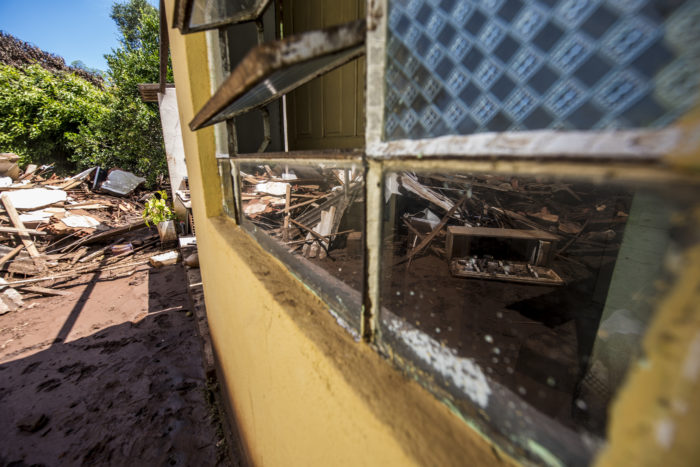Many communities remain unsafe and uncompensated in Brumadinho, Brazil, two years after the worst dam disaster in Latin American history at the Córrego do Feijão iron ore mine in south-eastern Brazil on 25 January, 2018, which left up to 270 people dead.
Scroll down to see a gallery of images from the disaster and its aftermath.
The Brumadinho dam, owned by the Brazilian company Vale, was the second to burst following an earlier disaster at another iron ore mine in Mariana in 2015.
Negotiations between Vale and the Brazilian government are reportedly now on hold.
Christian Aid and its partner organisation MAB (Movimento dos Atingidos por Barragens or Movement of People Affected by Dams) are stressing that this is a systemic issue, with a further estimated 33-45 dams considered vulnerable, and thousands at risk across the world, according to the NGO’s new report,The true cost of mining: Ensuring justice for people and communities affected by the Brumadinho dam disaster.
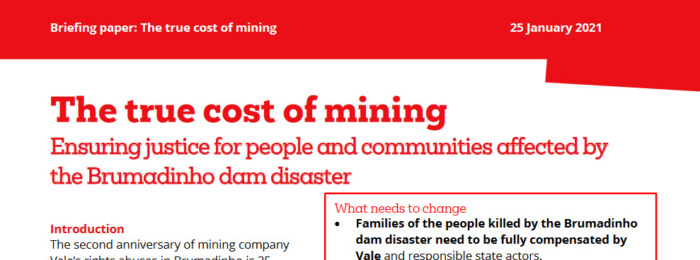
After the Brumadinho dam burst, the Church of England’s investment fund divested from Vale and they initiated a tailing dam safety initiative.
The initiative showed thousands of dams which are potentially risky to communities across the world, including in numerous countries where Christian Aid works.
Christian Aid is demanding that mining companies do not put profit ahead of people affected and living near communities, and find a more rights-based and environmentally sustainable model that does not harm communities and nature.
Maintaining the full engagement of all parties is vital in ensuring the lessons learned and resulting recommendations are properly implemented. Affected communities must remain front and centre of the response – local and international – and a rights-based methodology must be at the heart of the extractive industry’s operating model moving forwards.
Leticia Oliveira of MAB said:
“Initiatives are important, but we are arguing for clearer policies on the rights of people to their land and homes. Almost two years after the Brumadinho dam broke, we achieved in Minas Gerais the approval of a state rights policy. It is a victory but this law does not have all the points that those who have been affected want and need.MAB are pressing for a new law in this regard in Brazil at both federal and state levels. We will continue the struggle.”
Matti Kohonen, Christian Aid’s economic justice policy lead, said:
“The continued lack of effective remedy and compensation to the affected communities two years after the Brumadinho dam disaster shows that companies can still operate with impunity and they try to escape responsibility. This is why we need to agree on mandatory human rights due diligence to prevent disasters, and ultimately implement an international agreement that places the rights of people before profit in all situations to reverse this trend.”
Christian Aid and MAB say in the report – The true cost of mining – that the following needs to change:
- Families of the people killed by the Brumadinho dam disaster need to be fully compensated by Vale and responsible state actors.
- Compensation to people who have lost their livelihoods through contamination of waterways, lands and water should be provided using a fair, consultative and transparent process.
- People and communities displaced by further unsafe dams need adequate compensation, and support for their livelihoods
- Mining companies with tailings dams in every country need to be subject to mandatory disclosure of risks. Initiatives such as the Investor Mining and Tailings Safety Initiativeare important initial steps but should be made mandatory.
- A gender impact assessment of the human rights abuses and reparations should be conducted,according to nationally approved legislation and following guidance issued by the UN Working Group on Business and Human Rights.
- Extraterritorial responsibility of multinational companies headquartered abroad should be ensured through duty of vigilance and mandatory human rights due diligence laws.
- A UN Binding Treaty on Business and Human Rights should be agreed, providing robust access to remedy for human rights violations by multinational companies, including for individual victims, communities and to address gendered impacts.
- Robust implementation of human rights and environmental protection legislation should be ensured, with community participation. Modern mining generates huge volumes of waste; effective tailings management is crucial to reduce waste and protect communities and the environment. This requires mandatory legislation.
Please click here to see the report, The true cost of mining: Ensuring justice for people and communities affected by the Brumadinho dam disaster.

